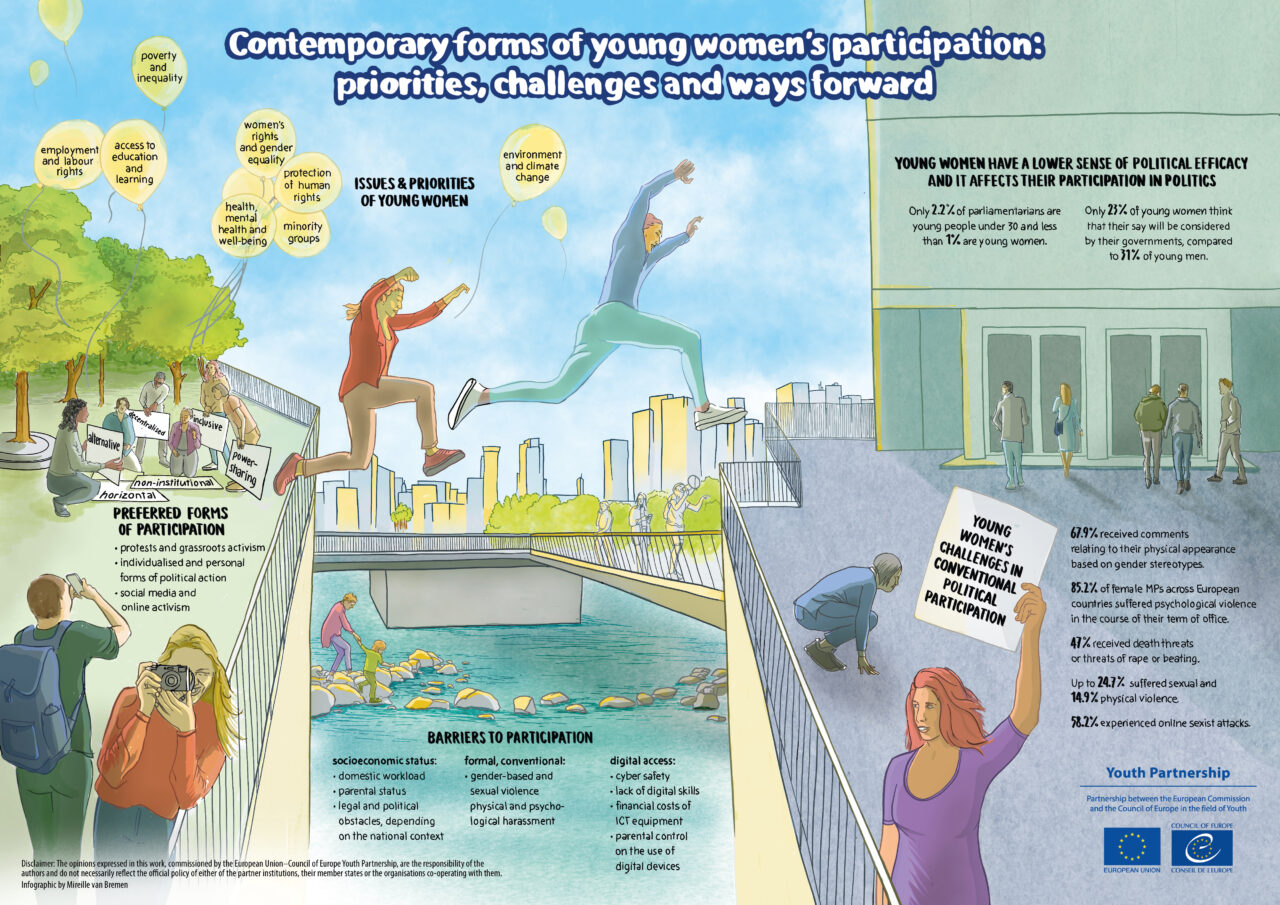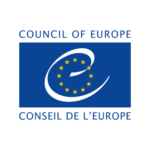Contemporary forms of young women’s participation: priorities, challenges and ways forward?
Year of production: 2023

Contemporary forms of young women's participation: priorities, challenges and ways forward, Infographic by Mireille van Bremen
Gender-based discrimination continues to pose critical barriers to the full participation of young women in democratic life. UN Women (2022) estimates that, at a current rate of progress, it will take another 300 years to achieve gender equality. For many young women, political participation remains challenging and foreclosing. According to the State of the World’s Girls report 2022 (Plan International 2022), 94% of the girls and young women surveyed globally recognised that their participation in political life entails challenges. Young women continue to face persisting barriers to their participation vis-à-vis their male counterparts. Although female representation in formal politics such as in parliaments and local councils is increasing, the figures are far from achieving full gender equality. On the other hand, young women are currently at the forefront of the mobilisation and campaigns around climate change, reproductive and gender rights, social and racial justice, among others. These differences in types of engagement highlight the persistence of gender roles and stereotypes which influence the type of participation young women (and men) engage with.
Although addressed by an increasing number of studies, the role of gender in youth participation along with the specificities of young women’s political engagement remain underexplored in both, policy and academic literature. In order to fill this gap and bring our knowledge of young women’s participation forward, this research presents an overview of the concepts and processes useful to understand the factors at the basis of gender inequality in youth political participation, as well as an illustration of the key topics addressed in this area,such as safe spaces, digital technologies and online gender-based violence, autonomy of young women, intersectionality and patterns of participation of young women from disadvantaged backgrounds.
The study takes stock of existing knowledge on young women’s participation and the gender gap in youth engagement in politics. Along with acknowledged changes in young people’s political behaviour, increasingly detached from institutional and representative politics, there are visible signs that the gender gap in political participation among youth is closing, especially if compared to previous generations. However, differences in challenges and opportunities for young women’s and men’s participation remain, highlighting the role of gender as a structure of power and source of inequality. In light of this, it remains crucial to examine the following questions: What role does gender play in the participation of young people? What are the opportunities and challenges for young women in conventional and unconventional participatory processes? On which topics and campaigns are young women more interested and involved?





